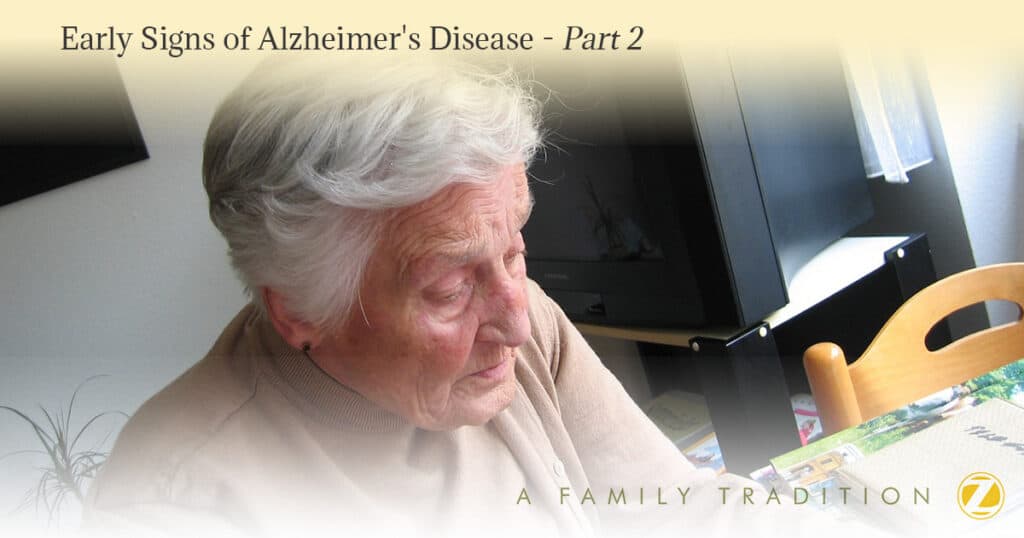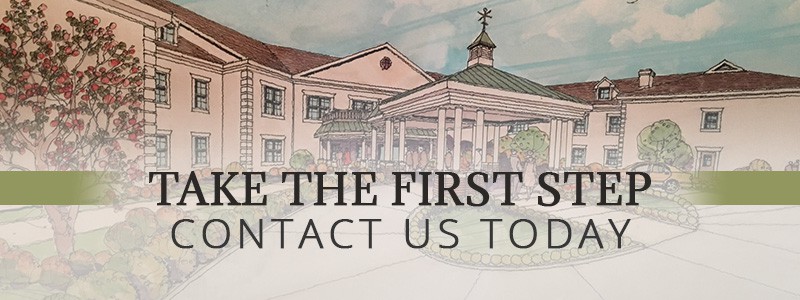
Does your family have a history of Alzheimer’s disease? If so, you may go back and forth between trying not to think about it and worrying intensely, especially if you have aging parents. The instant you see a change in their behavior, your mind probably jumps to Alzheimer’s and you wonder if you’re seeing its beginnings. Well, we want to take away some of the guesswork. At The Heritage, we offer specific services to people with memory loss in our Legacy Place, so we have some experience with the changes that come over the brain as it ages. Though we are not medical experts, we want to share some of our knowledge with you in hopes it will give you a starting point and maybe a little more peace of mind.
In our last blog, we discussed five early signs of Alzheimer’s, including poor judgment, trouble solving simple problems, noticeable personality changes, and two other signs. Today, we have five more signs to share with you.
More Early Symptoms of Alzheimer’s Disease
When you know what to look for, it can make it easier to identify Alzheimer’s in its early stages. Because Alzheimer’s is easier to manage when caught early, it is well worth learning what it looks like.
-
Your loved one has problems performing routine tasks.
- This is a symptom that many people write off because it is pretty normal to see people have trouble handling every-day life as they get older. But we’re talking about forgetting how to do extremely basic activities like running a microwave or checking email. Alzheimer’s affects the brain, so it doesn’t manifest in physical issues. You’ll see a person unable to mentally do what their body is completely able to do.
-
Your loved one can’t keep track of seasons or dates.
- Let’s face it: a majority of us don’t know what the date is until we have to write it down somewhere. We also get confused about what day of the week it is, especially if we’re in the middle of the holidays. However, if your loved one is perpetually lost and cannot hold onto where they are in the week or month, something may be up. It’s a good idea to watch him or her more closely.

-
Your loved one withdraws from social activities.
- Seniors withdraw from social life for many different reasons. They lose their friends; they get depressed; they get sick. However, if your loved one is refusing all invitations, don’t just write it off. Look a bit deeper. It may mean that your loved one has forgotten how to do a hobby or some other important part of who they used to be. This can make hanging out with friends embarrassing and confusing.
-
Your loved one has a harder and harder time finding correct words.
- If you find yourself itching to finish your loved one’s sentences or getting impatient because he or she loses a train of thought mid-sentence, watch closely to see if the problem persists. You’re looking for patterns that just keep coming back, not one-time situations, so give it a little time and be watchful.
-
Your loved one has memory problems.
- We saved this one for last because it is the main symptom people associate with Alzheimer’s, failing to realize that the list we just shared is also important. Short-term memory is usually affected early in the Alzheimer’s process, so if you’re seeing it paired with previously-mentioned issues, it may be time to contact a specialist. You will feel better when you understand what is going on.
Let the Team at The Heritage Help
The Heritage is Hammonton’s premium assisted living community. We proudly provide a great selection of living options to accommodate a wide array of tastes and budget. Because we are here to help people and their families rather than take advantage of them, we won’t charge for assistance we don’t give. Individualization sets us apart when it comes to our care — that, and our dedication to our residents’ independence and dignity.
At The Heritage, we offer a special solution to people with memory issues. It is called the Legacy Place, and it consists of safe, comfortable senior living apartments where people can thrive. Contact us to learn more about how we can make a difference in your life today!
